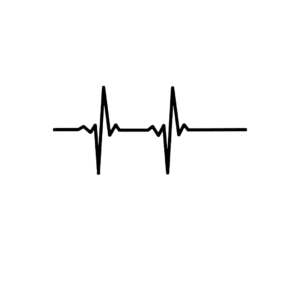Description
Overview of Master of Science in ECG Technology (M.Sc in ECG)
The Master of Science in ECG Technology (M.Sc in ECG) program is designed to prepare healthcare professionals with advanced knowledge and skills related to electrocardiography (ECG) and cardiovascular health. This program focuses on the principles and practices of ECG technology, cardiovascular diagnostics, and patient care, equipping graduates to work effectively in various healthcare settings, including hospitals and cardiology clinics.
Core Areas of Study in M.Sc in ECG Technology
Fundamentals of Electrocardiography
Understanding the electrical conduction system of the heart, waveforms, and the interpretation of standard ECG tracings.
Advanced ECG Techniques
Study of specialized ECG procedures, such as Holter monitoring, stress testing, and event monitoring.
Cardiovascular Anatomy and Physiology
In-depth exploration of the cardiovascular system, including heart structure, function, and physiological mechanisms.
Cardiac Pathophysiology
Examination of various cardiovascular diseases and conditions, their effects on heart function, and how they manifest on ECG readings.
ECG Interpretation and Clinical Decision-Making
Training in interpreting ECG results, recognizing abnormal rhythms, and understanding the clinical implications for patient management.
Patient Care and Communication
Skills for effective patient interaction, education, and support during cardiac procedures and assessments.
Health and Safety Protocols
Principles of safety and infection control in the context of cardiovascular testing and patient care.
Research Methodology in Cardiovascular Health
Introduction to research design and methodologies relevant to cardiovascular studies and technology.
Quality Assurance in ECG Practice
Ensuring the accuracy and reliability of ECG testing through quality management practices and compliance with healthcare regulations.
Ethics and Professionalism in Cardiology
Exploration of ethical considerations, legal requirements, and professional conduct in the field of cardiovascular technology.
Curriculum Structure
A typical M.Sc in ECG Technology program might include:
Core Courses: Required coursework covering essential ECG topics, cardiovascular physiology, and patient care practices.
Elective Courses: Options for specialization in areas such as cardiac rehabilitation, advanced cardiac monitoring, or pediatric cardiology.
Clinical Practicum or Internship: Hands-on experience in clinical settings, allowing students to apply theoretical knowledge and enhance their practical skills in ECG technology.
Capstone Project or Thesis: A research project that investigates a specific aspect of ECG technology or cardiovascular health, contributing to the field.
Admission Requirements
Admission to an M.Sc in ECG Technology program typically involves:
A bachelor?s degree in a related field, such as health sciences, nursing, respiratory therapy, or a similar discipline.
Relevant clinical experience or certification in ECG technology or cardiovascular health.
A minimum GPA or academic performance criteria as established by the institution.
Letters of recommendation from academic or professional sources.
A personal statement detailing the candidate?s interest in cardiology and career goals.
Skills Developed in an M.Sc in ECG Technology Program
Graduates of the Master of Science in ECG Technology program will develop a range of advanced skills, including:
Technical Proficiency: Expertise in performing, analyzing, and interpreting various ECG tests and procedures.
Clinical Assessment: Ability to assess cardiovascular health and recognize abnormal findings that require further investigation.
Patient Education: Skills for effectively communicating with patients about ECG procedures, results, and cardiac health.
Research and Analytical Skills: Competence in conducting research studies and applying evidence-based practices in cardiovascular technology.
Quality Improvement: Knowledge of implementing quality assurance measures to enhance the accuracy and reliability of ECG testing.
Career Opportunities
Graduates with a Master of Science in ECG Technology can pursue various career paths, including:
ECG Technician/Technologist
Performing ECG tests, Holter monitoring, and stress testing, and assisting healthcare providers with cardiac diagnostics.
Cardiovascular Technologist
Specializing in advanced cardiovascular diagnostic techniques and treatment procedures in a clinical setting.
Cardiology Clinical Educator
Teaching and training healthcare professionals or patients on ECG procedures and cardiovascular health management.
Quality Control Specialist in Cardiology
Overseeing quality assurance processes and compliance in cardiology departments or facilities.
Researcher in Cardiovascular Health
Engaging in research projects aimed at improving cardiology practices, ECG technologies, and patient outcomes.
Cardiac Rehabilitation Specialist
Working with patients recovering from cardiac procedures, providing education, and facilitating exercise and lifestyle changes.
Conclusion
The Master of Science in ECG Technology program offers comprehensive training in cardiovascular diagnostics and patient care, preparing graduates for advanced roles in cardiology. With a focus on technical skills, clinical assessment, and research, graduates are well-equipped to contribute significantly to patient health and outcomes in the field of cardiovascular medicine. If you have more questions about the M.Sc in ECG Technology program or related topics, feel free to ask!









